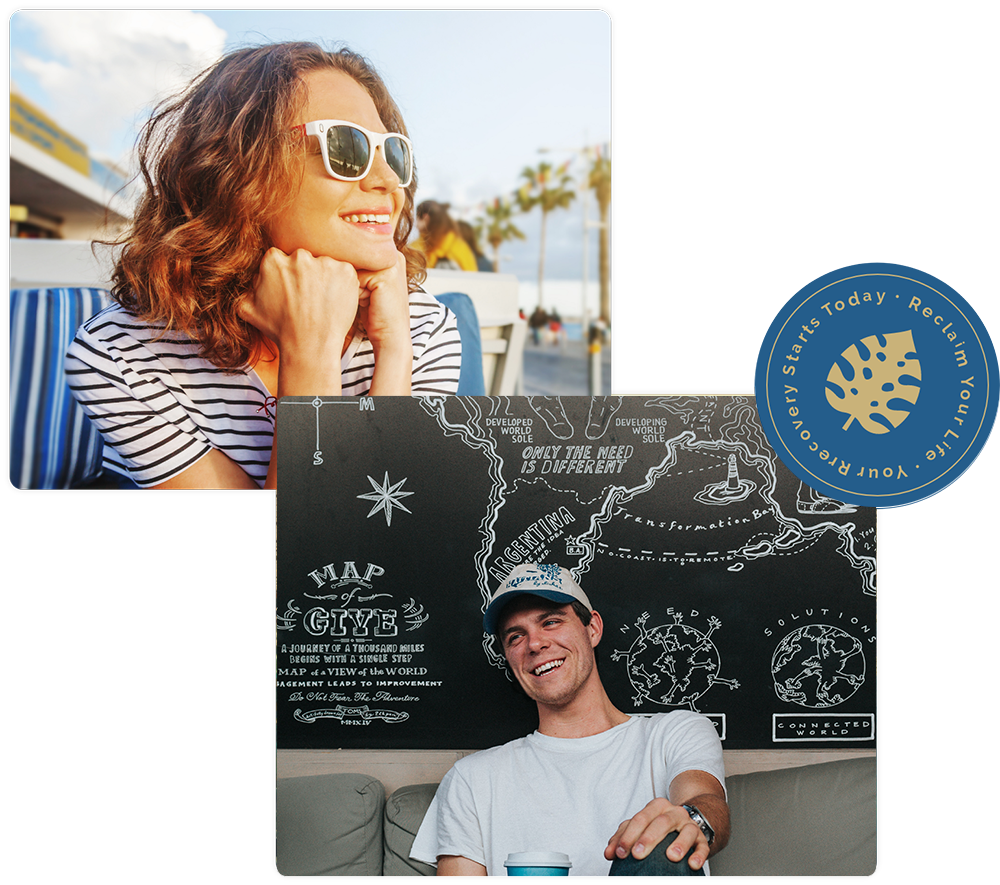The holidays can be a season of highs and lows for anyone, but if you are recently sober – or even several years into recovery – it can be difficult to stay clean during this time.
Seeing old friends and family members can bring back emotions tied to past holidays. These memories aren’t always pleasant and may make you want to turn to alcohol or drugs to cope with the anxiety, depression or stress they bring.
Link Between Holidays and Anxiety
Holidays can seriously affect those who already struggle with feelings of anxiety and depression. While it’s a time of joy and happiness for some, for others it can trigger negative emotional responses. But why is this? Sometimes simply entering a crowded room or carrying on conversations can produce intense anxiety. Other triggers of stress or anxiety disorders during the holidays include:
- Talking to co-workers at a large office party
- Exchanging gifts
- Large gatherings of people
- Long drives or flights
- Travel complications
- Busy schedules
What is the Connection Between Addiction and Anxiety Disorder?
In order to cope with an anxiety disorder, a person may start to self-treat with drugs and alcohol. They will experience temporary relief and even a sense of euphoria.
Unfortunately, this feeling doesn’t last, so they will try to recapture it over and over again. This can worsen the psychological and physical symptoms of anxiety and reinforce the need to use even more. The cycle eventually leads to dependence and addiction.
5 Common Anxiety Disorders
1. Generalized Anxiety Disorder: A continuous sense of dread with no specific focus
2. Social Anxiety Disorder: An unreasonable fear of interacting with others
3. Post-Traumatic Stress Disorder: This develops after a traumatic event
4. Panic Disorder: Episodes of overwhelming and uncontrollable terror
5. Specific Phobias: An irrational fear of an object, situation or animal
The key to getting through the holidays with your sobriety intact is to avoid the urge to self-medicate when trying to overcome these feelings of holiday anxiety.
Learning to Recognize the Physical Signs of Anxiety
Anxiety can even take a toll directly on the body. Those suffering from an anxiety disorder can have a physical response to situations or objects that seem threatening to them. These life-threatening responses can include:
- Shortness of breath
- Chest pain
- Trembling
- Insomnia
- Stomach pain
- Choking sensations
- Sweating
- Rapid Heartbeat
- Nausea
- Dizziness
11 Tips for Dealing with Anxiety & the Holiday Blues
Make a strategy and be ready for any situation that comes up during the holidays so you can survive these few weeks without turning to drugs or alcohol.
1. Practice self-care
Take time to relax and meditate every day. Lower your standards and reduce your demands when possible to help avoid depression.
2. Say no when needed
If you worry that certain activities might trigger anxiety, just say no. You’re not obligated to attend every function, especially if it could be dangerous to your recovery.
3. Make new traditions
Host a small gathering of people who make you feel comfortable. Or attend a celebration with a Twelve Step group.
4. Ask a sober friend to be on call
Find someone to turn to in case you feel the need to drink during holiday festivities. This person can be a sponsor, friend or family member.
5. Bring a non-drinking buddy
It can be easier to avoid alcohol at a party if you aren’t the only one staying sober. Reward yourselves in the morning with a nice brunch or walk in the park.
6. Bring your own drinks
Pack some sodas or seltzers for any holidays parties you attend. This way you always have something in your hand and you are less likely to be offered a drink.
7. Stay active
You may be more likely to drink alcohol or use drugs if you are sitting still. Make cookies or look at decorations to keep busy. Also find time to exercise or take a walk to help ward off depression.
8. Decide on a response
Not everyone at a holiday party will know you’re in recovery so have an easy reply ready when someone offers you a drink. It could be simply that you’re driving or have an early commitment in the morning. Choose a response that eases your anxiety.
9. Don’t overindulge
Try to keep a balanced diet and get enough sleep to avoid depression and anxiety. Good sleep habits help prevent relapses all year round.
10. Have an exit strategy
Be ready with an excuse to leave if you aren’t feeling comfortable or start craving a drink. You can say ahead of time that you have another party to attend so you don’t feel obligated to stay long. Or even have a friend call you at a certain time and see if you need a reason to leave.1
11. Attend spiritual services
These can help you avoid depression and remind you of the spirit of the season.
Help is Always Available for Addiction During the Holidays
Remind yourself that you aren’t the only one staying sober through the holidays. Plan ahead and remember that the holidays only last for a few weeks. You will be back to your normal routine soon. But if during this challenging time you feel a relapse coming on, reach out for help right away.
A comprehensive treatment center is crucial to treat both a mental health illness and an addiction. Clients with dual diagnoses (two diseases) need integrated services that address both problems together. At Footprints, we know relapse is a process and not an event, and work to address potential issues before they occur. For more information on our relapse prevention plan, contact us today.
References:
1How to Stay Sober Over the Holidays: 9 Tips from People in Recovery. www.everydayhealth.com. (accessed Dec 3 2018).



